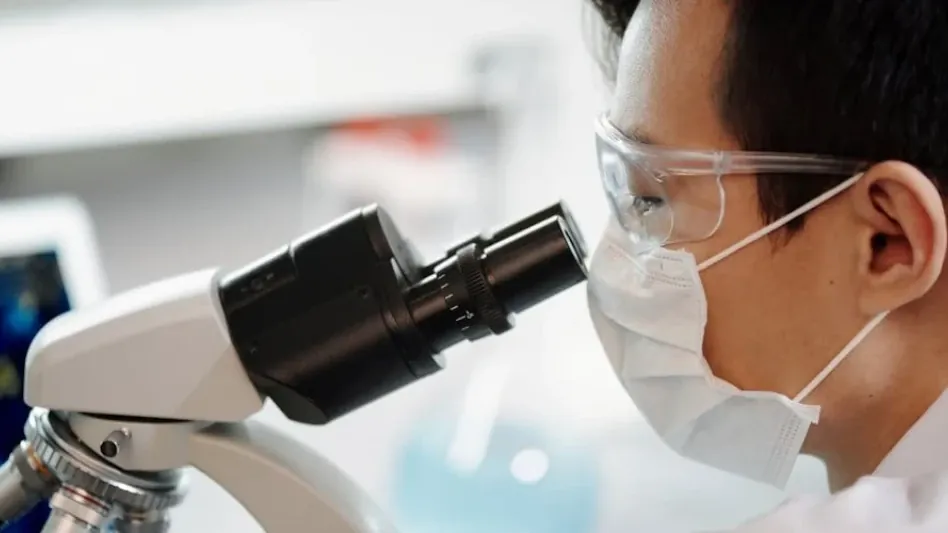As the biotechnology industry rapidly evolves, driven by technological advancements and a pressing need to address global health challenges, the demand for skilled professionals is skyrocketing. Approaching 2025, it is crucial to stay ahead of the curve by mastering essential skills that make biotech professionals indispensable. The biotechnology sector is not just about lab research anymore; it has become an interdisciplinary field that integrates data science, manufacturing, and cutting-edge genetic technologies. With a focus on combating health crises and improving sustainability, professionals must maintain and enhance specific skill sets. This article outlines the top three skills that employers will be seeking in biotech candidates by 2025, shedding light on the trends and applications that will define the future of biotechnology.
Introduction to Biotechnology’s Future
The COVID-19 pandemic underscored the critical role of biotechnology in global health, revealing alarming weaknesses in the worldwide health infrastructure and showcasing the immense potential of biotech innovations. Tools like CRISPR, mRNA vaccine technology, and advanced diagnostic systems emerged as game-changers in the race to combat the virus, paving the way for future biotechnological advancements. The pandemic shifted the focus towards early pathogen detection, extensive genome analysis, and expedited vaccine and treatment development, emphasizing the importance of preparedness in safeguarding global health. As biotechnology continues to evolve, it offers promising solutions for preventing future pandemics, enhancing overall healthcare, and addressing other significant challenges.
Biotechnology’s evolutionary path reveals its potential to avert pandemics before they even start, significantly improving global health and tackling pressing issues like personalized medicine, sustainable manufacturing, and the development of climate-resilient crops. To excel in this dynamic field, professionals must blend creativity with technical prowess, securing their spots as invaluable assets within the industry. By embracing the interdisciplinary nature of biotechnology, professionals can drive forward innovation and change, laying the groundwork for a healthier, more resilient world.
Data Science & Bioinformatics
Biotechnology has transitioned into a data-driven field, largely due to the digitization of biological research and the rise of high-throughput sequencing and multi-omics studies. The sheer volume of data generated necessitates expertise in data science and bioinformatics to extract meaningful insights. These disciplines are fundamental in analyzing vast datasets and applying them to various biotechnological applications, making them indispensable in modern biotech job markets.
Professionals entering this realm need a myriad of skills, starting with proficiency in programming languages such as Python, R, and MATLAB, utilized for statistical analysis and modeling. Multi-omics integration, which involves combining and scrutinizing datasets from fields like genomics, proteomics, metabolomics, and transcriptomics, is critical for deriving comprehensive biological insights. Moreover, expertise in machine learning and artificial intelligence is essential for recognizing patterns in complex datasets, aiding in drug target discovery and predicting disease progression. Equally important are robust data management skills, familiarity with cloud computing platforms such as Google Cloud and Amazon Web Services, and competence in data visualization tools like Tableau, Seaborn, and ggplot2.
Data science and bioinformatics have wide-ranging applications. In personalized medicine, these skills enable the customization of treatments based on an individual’s genetic makeup, significantly improving treatment outcomes. Agricultural biotechnology leverages these capabilities to analyze crop genomes, fostering traits that enhance yield and resilience. Additionally, in drug discovery, the application of AI and machine learning is revolutionizing the identification of therapeutic candidates and reducing associated costs. Emerging trends in this field, such as spatial transcriptomics, single-cell omics, and generative AI applications, are poised to transform biotech research further. Examples like Exscientia, which uses AI for drug discovery and clinical trial preparation, illustrate how these technologies are already making a substantial impact.
Biomanufacturing & Process Development
Biomanufacturing and process development serve as the vital bridge connecting laboratory innovations with large-scale production. This connection is essential for ensuring that biological products, such as vaccines and cell-based therapies, can be scaled up efficiently and safely from the experimental stage to widespread use. These fields encompass the optimization and standardization of processes that transform groundbreaking lab research into viable products ready for the market.
Key competencies in biomanufacturing and process development include process design expertise, spanning both upstream (fermentation, cell culture) and downstream (chromatography, purification) activities. Experience with single-use technologies, modular systems, and disposable bioreactors is crucial to enhance efficiency and flexibility in production. Regulatory expertise is another critical area; professionals must have a thorough understanding of current Good Manufacturing Practices (cGMP), as well as regulations from bodies such as the FDA and EMA. Knowledge of automation and digitalization is increasingly important for real-time monitoring and optimizing production processes, along with maintaining stringent quality assurance standards to ensure product safety, consistency, and compliance.
The importance of biomanufacturing and process development was underscored by the rapid production of COVID-19 vaccines. These fields facilitated the transition from lab-based research to mass production, making it possible to develop and distribute vaccines on an unprecedented scale. Beyond vaccines, biomanufacturing plays a pivotal role in developing scalable methods for cell and gene therapies, industrial biotechnology applications, and the production of sustainable materials, bioplastics, and biofuels. Emerging trends like continuous bioprocessing, which transitions from batch to continuous production systems, and digital twins, which use virtual simulations to optimize manufacturing performance without physical trials, will drive future advancements. Green manufacturing methods that develop eco-friendly production processes are also gaining traction, demonstrating the commitment to sustainability within the biotech industry.
Gene Editing & Synthetic Biology
Gene editing and synthetic biology represent the cutting edge of biotechnology, revolutionizing the ability to manipulate and design biological systems. These disciplines open up unprecedented opportunities across healthcare, agriculture, and environmental sustainability, making them central to biotech innovation. Mastering these skills is essential for those looking to thrive in the rapidly changing biotech landscape.
Proficiency in gene editing tools such as CRISPR-Cas9, base-editing technologies, and TALENs is fundamental for making precise genetic modifications. Pathway engineering skills are also crucial, as they involve designing and optimizing metabolic pathways to produce valuable substances like biofuels and pharmaceuticals. Familiarity with synthetic biology platforms, including SnapGene and Benchling, is necessary for constructing and managing genetic constructs. Moreover, professionals must possess a strong understanding of ethical and regulatory considerations, encompassing biosafety protocols, intellectual property rights, and the broader ethical implications of their work. Interdisciplinary collaboration is another key competency, as it enables the integration of diverse expertise to drive innovative and responsible biotechnological advancements.
Applications of gene editing and synthetic biology are vast and varied. In healthcare, these technologies are instrumental in developing gene therapies for genetic disorders such as muscular dystrophy, offering hope for previously untreatable conditions. In agriculture, gene editing is used to create crops with improved yield and resilience to climate change, contributing to global food security. Synthetic biology is also revolutionizing biomanufacturing by enabling the production of rare and valuable compounds. Emerging trends like prime editing, which allows for highly precise genetic modifications without cutting DNA, and biofoundries, which are automated facilities speeding up the design and testing of synthetic biology constructs, are pushing the boundaries of what is possible. Gene drives, which can spread beneficial traits throughout a population to combat diseases like malaria, exemplify the transformative potential of these technologies.
Professionals equipped with these skills are not only poised to secure high-demand positions but also to contribute significantly to the advancement of global health and sustainability. The challenge lies in staying current with these evolving technologies and being adaptable to new developments. This combination of technical expertise, ethical awareness, and a collaborative mindset will be the hallmark of successful biotech professionals in the coming years.
Conclusion
Biotechnology has evolved into a data-centric discipline, driven by the digitization of biological research, high-throughput sequencing, and multi-omics studies. The immense data generated in this field calls for expertise in data science and bioinformatics to uncover valuable insights. These skills are critical for analyzing large datasets and applying the findings to various biotech applications, making them essential in today’s biotech job market.
Entry-level professionals need a diverse set of skills, including proficiency in programming languages like Python, R, and MATLAB for statistical analysis and modeling. Mastery in multi-omics integration—combining data from genomics, proteomics, metabolomics, and transcriptomics—is necessary for comprehensive biological understanding. Additionally, expertise in machine learning and artificial intelligence is crucial for identifying patterns in intricate datasets, aiding in drug target discovery and disease progression prediction. Strong data management abilities, familiarity with cloud computing platforms such as Google Cloud and Amazon Web Services, and knowledge of data visualization tools like Tableau, Seaborn, and ggplot2 are also vital.
The applications of data science and bioinformatics are vast. In personalized medicine, these skills allow the customization of treatments based on a person’s genetic profile, significantly enhancing treatment outcomes. In agricultural biotechnology, they help analyze crop genomes to improve traits like yield and resilience. In drug discovery, AI and machine learning are transforming the identification of therapeutic candidates and reducing costs. Emerging trends such as spatial transcriptomics, single-cell omics, and generative AI are set to propel biotech research even further. Companies like Exscientia, which employ AI for drug discovery and clinical trial preparation, exemplify the significant impact of these technologies in the field.









